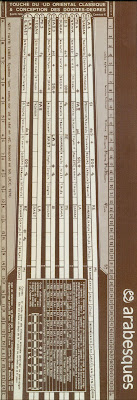Hatem Askari Farahani (Vocal)
Dr. Dariush Safvat (Setar)
Vocal Radif
"Two important lineages of vocal radif-ha exist. The most influential and widely disseminated is that of Abdollah Davami (1891-1980), particularly as it was transmitted through his pupil Mahmud Karimi (1927-1984). This radif is characterized by its cogency and (particularly Karimi’s) self-similarity: its dense transposition and recycling of motives, tahrirs, and entire phrases. The second line of vocal radif transmission is relatively little known. The repertoire preserved by Hatam Askari Farahani (b. 1933) extends back through his teacher Seyyed Zia Rasa’i (a.k.a. Zakeri) to Seyyed Abdol Rahim, an influential and somewhat legendary master active at the turn of the 20th century. Askari deliberately restricted his transmission of this very large repertoire to preserve its integrity from the abuses that can be associated with published radif-ha. Askari finally recorded this radif but it remains unpublished as yet. It is characterized by its large size due to the greater number of gusheh-ha, their lengthier duration, and the inclusion of rhythmic types that are normally only associated with instrumental radif-ha. Askari’s nephew Farhad Farhani believed that the transmission of this radif included anecdotes describing the circumstances regarding the creation of particular melodies—a quasi-epic account of Persian music history (personal communication, 1998)."
From "Persian Vocal Music: Avaz" by Rob Simms
A short version consisting of parts of this vocal Radif was eventually published in Iran on 4 cassettes. This is the one we post here. There exist also complete recordings of Dastgah-e Mahoor on 6 cassettes or CDs and Dastgah-e Nava also on 6 cassettes or CDs. These were only distributed privately amongst students of Hatem Askari and are extremely difficult to get.
Volume 1:
Side 1:
Mahur (27:58)
Side 2:
Bayat-e Tork & Afshari (30:24)
Volume 2:
Side 1:
Shur (27:55)
Side 2:
Shur continued, Abu 'Ata, Dashti (29:22)
Volume 3:
Side 1:
Chahargah (29:46)
Side 2:
Nava (28:15)
Volume 4:
Side 1:
Homayun (28:24)
Side 2:
Bayat-e Esfahan, Segah (29:24)
Addition on 15th of march 2017:
Recently Mahoor in Teheran published several CDs and sets of CDs by the artist. These can be obtained from info@raga-maqam-dastgah.com.
Hâtam Asgari Farâhâni (Vocal) & Dâryoush Safvat (Setar) - Vocal Radif -
Dastgah Nava, Set of 2 CDs, CD 1: Pishdaramad & Daramad (Instrumental)
(1:42), Daramad-e Avval (6:22), Kereshme-ye Avval (2:07), Gardaniye (2:07),
Naghme-ye Gardaniye (1:59), Jamedaran (2:58), Chaharbagh (4:33), Gushe-ye
Khorasani (6:17),Raje, Part 2 (2:25), Hazin & Forud (1:16), Oshaq (3:16),
Gushe-ye Sheydayi (3:12), Oshaq, Part 2 (2:47), Owj-e Oshagh (2:52), Zarbi-ye
Oshagh (4:30), Araq, Part 2 (3:50), Hasti-o Nisti (2:50), Mohayyer (1:47), Ashur
(2:55), Esfahanak (2:19), Gushe-ye Afsus (1:59), Neyshaburak (2:59), Naghme-ye
Neyshaburak (3:11), Majosli (3:09),
CD 2: Naghmesara or Naghme-ye Nobaharan (in Nahoft mode) (3:54), Gerye-o
Khande (Zarbi-ye Majosli) (2:46), Gavesht (2:48), Samarqandi (4:52), Gushe-ye
Vesal (Zarbi-ye Gavesht) (2:51), Ashiran (2:29), Naghme-ye Ashiran (1:22),
Ashiran interpreted by Aqa Zia (3:31), Naghme-ye Ashiran (2:00), Zarbi-ye
Ashiran (2:35), Khojaste (2:34), Bahariye (3:11), Gushe-ye Tanhayi (in Hoseyni
mode) (2:45), Busalik (4:07), Rahavi (1:37), Naghme-ye Rahavi (3:55), Masnavi-ye
Rahavi (2:46), Gushe-ye Bikhabari (5:55), Masihi (2:47), Masnavi-ye Rohhab
Masihi (5:08), Takht-e Taqdis (2:43), Naqus (4:17), MAHOOR, M.CD-399
Recorded in 1992. Total time: CD 1: 73:24, CD 2: 70:56.
Hâtam Asgari Farâhâni (Vocal) & Bahman Kâzemi (Setar) - Dastgah-e Shur
- Vocal Radif: Pishahang-e Shur (7:28), Hoseyni (4:45), Kereshme-ye Hoseyni
(2:15), Daramad-e Aram (4:54), Daramad-e Khara (1:59), Naghme-ye Khara (3:19),
Chahar Naghme (5:19), Khosravani (4:23), Arezu (7:54), Rohab (2:38), Naghme-ye
Rohab (3:00), Kereshme-ye Rohab (2:12), Vazn-e Sargashte (3:40), Zarbi-ye Akhar
(3:02), MAHOOR, M.CD-400
Recorded in 2013. Total time: 56:54. Excellent CD by the outstanding
master.
Hâtam Asgari Farâhâni (Vocal) & Bahman Kâzemi (Setar) – Dastgah-e
Chahargah – Vocal Radif Interpreted & Performed by Hâtam Asgari Farâhâni,
set of 3 CDs: CD 1: Dastgah-e Chahargah (67:07), CD 2: Dastgah-e Chahargah
(71:54), CD 3: Dastgah-e Chahargah (68:02), MAHOOR, M.CD-420
Here another outstanding recording of exquisite beauty by the great Radif
master Hâtam Asgari Farâhâni (born 1933). This time an "encyclopedic" Dastgah
Chahargah of almost 3 and a half hours. With excellent Setar accompaniment. Very
beautiful, very subtle, very refined music. Wonderful.
Hâtam Asgari Farahani is one of the most outstanding singers of the second
half of the 20th century, with a very rare repertoire which goes far beyond any
other known repertoires. His Radif is much vaster than the known Radifs. Here we
have one more recording by the artist on CD, the third one in the edition of his
Radif (see below for the former CDs). Before there existed only some cassettes
which only circulated amongst his students and were extremely difficult to
get.
Hâtam Asgari (Vocal) & Bahman Kazemi (Setar) - Masnavi in Persian
Dastgâhi Music, Set of 2 CDs, CD 1: Dastgah-e Shur (10:28), Avaz-e Abu'ata
(9:56), Avaz-e Dashti (10:25), Avaz-e Kord-e Bayat (9:24), Avaz-e Bayat-e Tork
(11:39), Avaz-e Afshari (12:11), Dastgah-e Nava (9:49), CD 2: Dastgah-e Mahur
(10:56), Avaz-e Bayat-e Esfahan (7:33), Dastgah-e Segah (9:05), Dastgah-e
Homayun (12:13), Avaz-e Shushtari (10:51), Dastgah-e Chahargah (11:32), Rast
(7:55), MAHOOR, M.CD-393
New studio recordings.


















































